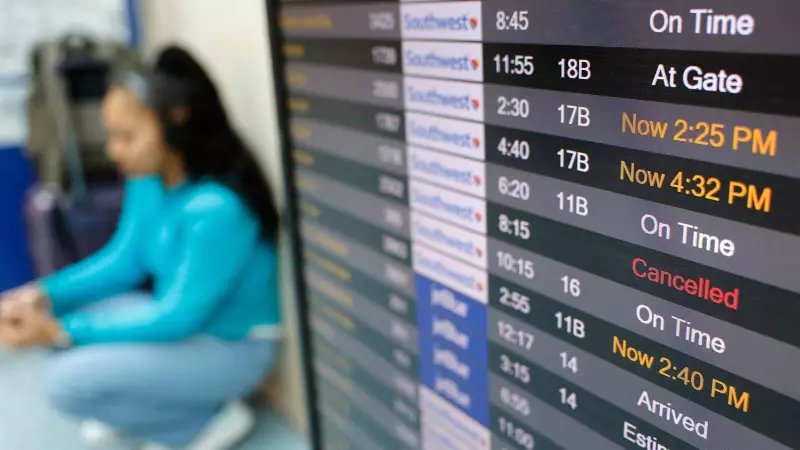
The Federal Aviation Administration (FAA) has provided significant relief to air travelers by scaling back mandatory flight cancellations as the United States recovers from the recent government shutdown. The aviation regulator announced on Friday that it was reducing cancellation requirements from 6% to just 3% at 40 major airports across the country.
Improved Staffing Leads to Policy Change
This decision comes as air traffic controller staffing levels show marked improvement following the end of the 43-day government shutdown that concluded on Wednesday night. The FAA and Department of Transportation confirmed that more controllers are returning to work after being forced to work without pay during the shutdown period.
The initial order for flight reductions was issued on November 7, when the FAA cited serious safety concerns due to rising absences at air traffic control facilities and towers. Transportation Secretary Sean Duffy has emphasized that safety metrics must show sustained improvement before the order can be lifted entirely.
Impact on Airline Operations
The flight restrictions created significant disruption across the aviation industry, leading to the cancellation of more than 11,800 flights between November 7 and Friday. The situation reached a critical point last Sunday when nearly 3,000 flights were cancelled - approximately 10% of the day's scheduled operations - due to the combined effect of the FAA order, ongoing controller shortages, and adverse weather conditions.
Before the FAA's updated guidance on Friday, airlines had already begun anticipating positive changes. FlightAware data showed only 159 cancellations scheduled for Saturday, while United Airlines, which had been posting advance cancellations throughout the previous week, listed no cancellations beyond Friday.
Road to Recovery and Thanksgiving Travel
How quickly the aviation system will stabilize remains uncertain. The flight restrictions disrupted airline operations within days, leaving many aircraft out of position and requiring extensive rerouting. Airlines for America, the trade group representing US carriers, warned that residual effects could persist for several days.
Despite these challenges, airline executives expressed optimism about a rapid recovery, especially with the busy Thanksgiving travel week approaching. Delta Air Lines CEO Ed Bastian appeared on "CBS Mornings" following the shutdown's conclusion and predicted a return to normalcy "a lot faster than people think."
Bastian reassured travelers that "Thanksgiving is going to be a great holiday period of travel," emphasizing that normal operations for the airline mean "an incredibly safe, incredibly reliable, great experience."
The nationwide shortage of air traffic controllers predates the recent shutdown, but the 43-day crisis highlighted and potentially worsened the problem. Duffy revealed that during the shutdown's final days, 15 to 20 controllers were retiring daily, with some younger controllers leaving the profession altogether.
The FAA and Department of Transportation have committed to continuing close monitoring of the situation throughout the weekend and will evaluate when normal operations can fully resume.





